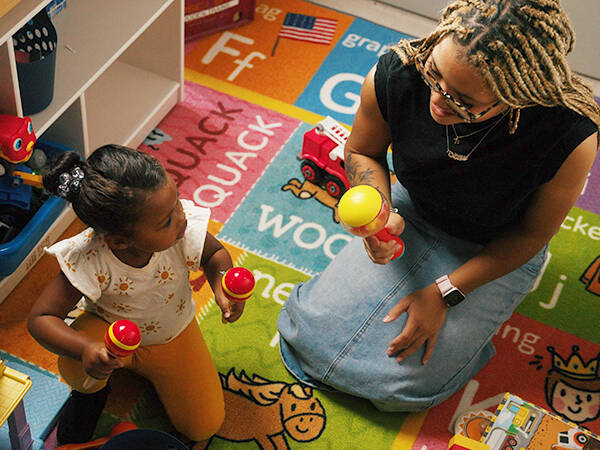By Participating In VQB5, sites receive

Financial Recognition
Eligible early child care educators will receive a retention incentive for up to $1,500 from RecognizeB5.

Public Recognition
In October 2024, VDOE created an online portal with information about early childhood program performance on quality measures and other topics of interest.

Strengthened Quality
Classroom observations will be conducted in fall and spring with educators receiving individualized feedback and support.

Training and Support
Educators and leaders will have access to support, training, and resources to help improve interactions.
VQB5 Participation Requirements 2023-2024
Beginning in August 2023, all publicly funded programs that serve children ages birth to 5 are required* by state law to participate in VQB5. This includes:
- Early Childhood Special Education (ECSE or IDEA Part B, Section 619 preschool)
- Federal Child Care Access Means Parents in School (CCAMPIS)
- Federal Department of Defense Military Child Care Fee Assistance (MCCYN)
- Head Start / Early Head Start
- Local government child care assistance, such as Fairfax’s Child Care Assistance and Referral (CCAR) program
- Title 1 Preschool
- Virginia’s Child Care Subsidy Program (VA CCSP)
- Virginia Early Childhood Foundation (VECF) Mixed Delivery
- Virginia Preschool Initiative (VPI)
Learn more about requirements for all publicly-funded programs serving children ages birth through age five.
* Programs that do not receive public funding have the option to participate

Questions?
For further information, reach out to VQB5 staff.


RecognizeB5
RecognizeB5 is a component of VQB5 that provides direct financial incentives to eligible teachers, with the goal of reducing teacher turnover in child care and family day homes, where wages are significantly lower than in comparable settings. The program is open to both Lead and Assistant teachers working in publicly-funded child care and family day home sites that are participating in VQB5.
RecognizeB5 2023-2024 Guidelines & FAQ
RecognizeB5 Overview (1-pager) 2023-2024 [ENGLISH] [SPANISH]
RecognizeB5 FAQ 2023-2024 [ENGLISH] [SPANISH]
RecognizeB5 Support: 804-358-8323 Ext. 129 or RecognizeB5@vecf.org
More on RecognizeB5
RecognizeB5 recognizes that strengthening the Early Child Care Education (ECCE) system starts at the classroom level.
- Many early childhood educators — especially in family day homes and child care settings — are women of color who provide an essential service yet often are paid less than educators in school-based settings.
- Educators should be supported to improve and be recognized as one of the most important elements to a high-quality experience
for young learners. - Educator turnover is much higher in these settings, which can negatively impact adult-child relationships and interactions.
